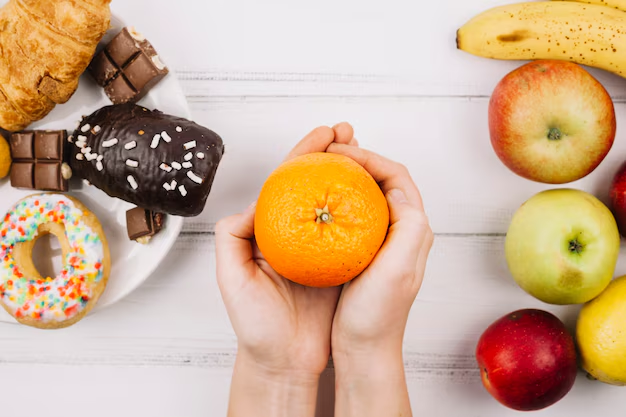Your Guide to Is Watermelon a Good Food For Diabetics
What You Get:
Free Guide
Free, helpful information about Diabetes FAQ and related Is Watermelon a Good Food For Diabetics topics.
Helpful Information
Get clear and easy-to-understand details about Is Watermelon a Good Food For Diabetics topics and resources.
Personalized Offers
Answer a few optional questions to receive offers or information related to Diabetes FAQ. The survey is optional and not required to access your free guide.
Can Diabetics Safely Enjoy Watermelon?
Navigating dietary choices can be a challenge for people with diabetes, especially when it comes to enjoying sweeter fruits like watermelon. With its refreshing taste and hydrating properties, watermelon is a favorite during hot summer days. But does its sweetness pose a risk to blood sugar levels, or can it be part of a balanced diet for diabetics?
Understanding Watermelon's Nutritional Profile
Watermelon is not only delicious but also packs a punch with nutrients. It contains vitamin C, vitamin A, potassium, and magnesium. Moreover, it is high in lycopene, an antioxidant known for reducing the risk of certain cancers and promoting heart health. Despite its health benefits, watermelon comprises about 90% water, which is why it's a great hydrating fruit.
However, the concern for people with diabetes is primarily about the fruit's glycemic index (GI), a measure of how quickly foods raise blood sugar levels. Watermelon tends to have a high glycemic index of about 72. Foods with a GI of 70 or above are usually considered high GI foods, which can lead to spikes in blood glucose.
Glycemic Load: A More Balanced Perspective
While watermelon’s GI is high, it's important to focus on the glycemic load (GL), which takes into account the carbohydrate content of the portion size. Watermelon's glycemic load is relatively low because it has fewer carbohydrates per serving than other high-GI foods. In moderation—ideally, a one-cup serving—watermelon can fit into a diabetic-friendly diet without causing a significant increase in blood sugar levels.
Incorporating Watermelon into a Diabetes-Friendly Diet
For people with diabetes, the key to enjoying watermelon is moderation and balance. Here are some tips:
- Pair with Protein or Healthy Fats: Eating watermelon with a source of protein or healthy fat, like nuts or cheese, can help slow sugar absorption and maintain stable blood sugar levels.
- Monitor Portion Sizes: Stick to smaller servings to keep carbohydrate intake in control.
- Maintain Overall Nutritional Balance: Keep track of carbohydrates and other nutritional components in your diet to prevent exceeding recommended limits.
Exploring moderation with watermelon provides a gateway to reflect on the broader spectrum of managing diabetes. Along with mindful eating, understanding financial and educational resources can empower better management of health conditions.
Financial and Educational Resources for Diabetics
Managing diabetes can entail extra costs and educational needs. Fortunately, numerous resources are available to assist:
- 🩺 Medicare & Medicaid: Programs offer coverage for diabetes supplies and management tools.
- 🍽 Supplemental Nutrition Assistance Program (SNAP): Provides nutritional assistance that can help access healthier food options.
- 🎓 Diabetes Education Programs: Educational courses and workshops, often offered by local health departments, can enhance self-management skills.
- 💰 Financial Counseling Services: Many nonprofit organizations provide budgeting advice tailored for medical expenses related to chronic conditions.
- 💳 Credit Management Resources: Services help manage debt and improve credit scores, allowing more financial flexibility for healthcare needs.
Balancing nutritional decisions and exploring available support systems can pave the way to effectively managing diabetes while maintaining a fulfilling lifestyle.
What You Get:
Free Diabetes FAQ Guide
Free, helpful information about Is Watermelon a Good Food For Diabetics and related resources.

Helpful Information
Get clear, easy-to-understand details about Is Watermelon a Good Food For Diabetics topics.

Optional Personalized Offers
Answer a few optional questions to see offers or information related to Diabetes FAQ. Participation is not required to get your free guide.


